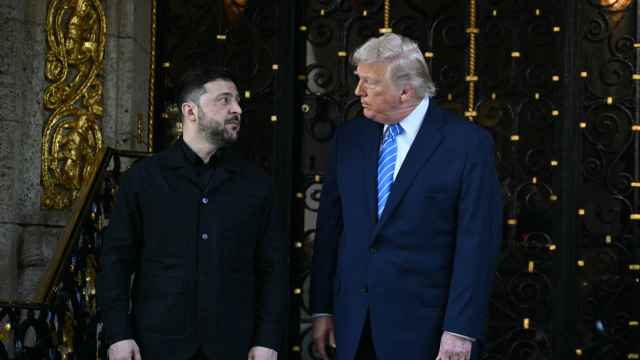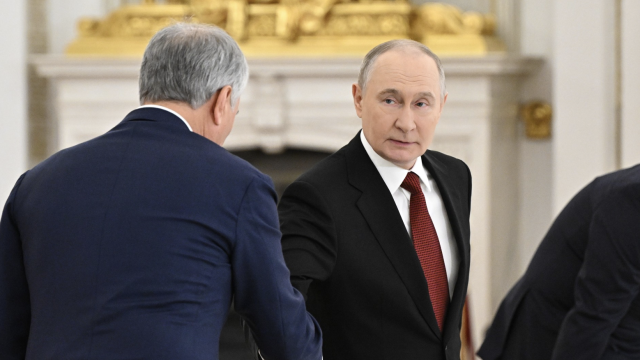The Russian currency continued its recent slide Wednesday, reaching its lowest level against the dollar since 2009 and recording a historic minimum against the euro.
The euro was worth more than 49 rubles during morning trading, while the dollar rose to 35.59 rubles, its highest level against the ruble since March 2009, according to data from the Moscow Exchange.
The ruble has led 2014 declines by emerging market currencies. This year the currency has lost over 6 percent of its value against the euro-dollar basket, the benchmark used by the Central Bank.
Russian officials have denied that the authorities are deliberately allowing the ruble to weaken in order to raise export revenue and stimulate the country's flagging economy.
Unlike the other central banks in other emerging markets, the Russian regulator has not raised rates in an attempt to stem the ruble's slide.
In an apparent attempt to balance the dual challenges of stubbornly high inflation and stagnant economic growth, the Central Bank kept interests rates on hold following its policy meeting last week.
A Message from The Moscow Times:
Dear readers,
We are facing unprecedented challenges. Russia's Prosecutor General's Office has designated The Moscow Times as an "undesirable" organization, criminalizing our work and putting our staff at risk of prosecution. This follows our earlier unjust labeling as a "foreign agent."
These actions are direct attempts to silence independent journalism in Russia. The authorities claim our work "discredits the decisions of the Russian leadership." We see things differently: we strive to provide accurate, unbiased reporting on Russia.
We, the journalists of The Moscow Times, refuse to be silenced. But to continue our work, we need your help.
Your support, no matter how small, makes a world of difference. If you can, please support us monthly starting from just $2. It's quick to set up, and every contribution makes a significant impact.
By supporting The Moscow Times, you're defending open, independent journalism in the face of repression. Thank you for standing with us.
Remind me later.





